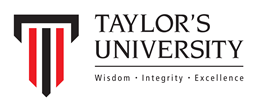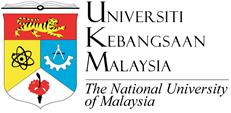
Have you ever wondered what makes people dress the way they do, or why some of us can’t live a day without posting memes or emojis in our tweets, or other questions you may have about how society works?
If you caught yourself buzzing with questions about what makes us the way we are then perhaps you may be interested to study in humanities and social sciences to feed your endless list of curiosities!
Humanities and social sciences is a great alternative to the other popular courses that revolve around science, technology and mathematics.
Be assured that it is completely fine to divert your interest and commitment to another study field such as this one. The truth is, not everybody is thrilled to spend more than 3 years cracking formulas and codes, dissecting the human anatomy and many other things.
In humanities and social sciences, the freedom to study and understand ourselves is what makes this course so popular. In many ways, it is a more enjoyable option for students who are all about colouring their opinions about the world and build a deeper understanding and interest in ourselves.
Read on to find out more about what humanities and social sciences can offer you:
-
What does humanities and social science study?
-
What is the difference between humanities and social sciences and science?
-
What are the major fields in humanities and social sciences?
-
What are the important skills do I need in this field?
-
What are the entry requirements and qualifications?
-
How long will I be studying in this programme?
-
How much does it cost to study humanities and social sciences?
-
What are the benefits of studying humanities and social sciences?
-
What are the job opportunities?
-
Which recognised universities offer Humanities and Social Sciences programmes in Malaysia?
What does humanities and social science study?
Humanities and social sciences encompass two broad fields that, together, aim to understand and appreciate the human experience across socities and cultures.
It also looks into our experience and relationships with people, and how we communicate with other members of society. In general, humanities and social sciences investigate the more human aspect of our lives such as through our history, language, politics, psychology and many more.
However, for your understanding, there is a stark difference between the two. The most obvious difference is that humanities focus on a more philosophical perspective at how people register with human experience which involves critical and analytical approaches.
| Humanities | Social Sciences |
| Focused on how people deal with human experience in society through a critical and analytical lens. | Relates to a more scientific approach of the human behavior and societies. |
| Considers subjective experiences, values, and belief. | Relies on data and research methods to understand social phenomena. |
| Subjects: Philosophy, arts and music, religious study, history | Subjects: Economics, psychology, sociology, linguistics and law |
What is the difference between humanities and social sciences and science?
Another common source of confusion involves comparing humanities and social sciences to science courses. You might be wondering, what sets humanities and social sciences apart from science courses?
To address this question, it's important to note that while both humanities and social sciences, as well as science courses, share the overarching goal of exploring and understanding various aspects of the world, they diverge significantly in their subject matter and methodologies.
As previously mentioned, humanities and social sciences encompass disciplines that aim to appreciate the human experience across different societies and cultures.
Conversely, science primarily focuses on investigating the physical world and natural phenomena. Disciplines such as physics, chemistry, biology, and astronomy seek to uncover the underlying laws that govern the universe. This pursuit involves meticulous experimentation, observation, data collection, and hypothesis testing through the scientific method.
What are the major fields in humanities and social sciences?
There are dozens of recognised programmes that fall under humanities and social sciences. They are comprised of some of the major fields in this discipline. Check a few of them out:
1. Law
Students in law are trained to become professionals who maintain order and justice in society. In university, they are taught to understand and decipher the many laws and regulations that have been established by the country as well as international laws. Whether they choose to set their career path as judges, prosecutors and solicitors, or even individuals who represent organisations, they are well versed in legal matters.
2. Language and Linguistics
Often taught distinctively, language and linguistics allow students to fully understand why people of different backgrounds converse the way they do, how communication is done among people, the differences between languages as well as the changes they go through. This is only possible by carefully dissecting language into smaller components and continuously form close connections with the different communities of languages.
3. Arts and Music
In arts and music, students can enhance their understanding in music theories and skills which also allows them to further explore into the arts of humanities and social sciences. Besides opportunities to produce and perform art or learning music entrepreneurship, there is exposure to arts and music on a more academic level as well.
4. Psychology
Psychology is generally interesting for students from different course backgrounds because its connection with not only natural sciences but also in humanities and social sciences. This field looks into people especially in terms of their responses to their surroundings such as their behaviour, actions and thoughts.
5. Politics
Studying politics does not necessarily mean you will end up being a politician and running the country. In fact, it’s more than that as you can get exposure into what goes around your local and international politics. Students can acquire theories as well as learning the political system involving power from all levels. This major builds individuals who are involved in the national politics, ambassadors, politics analysts, human rights activists and many more, and all whom make a difference to the society.
What are the important skills I need in this field?
There is a saying that goes, quality over quantity. Don’t think too much on how many skills you need to have but rather focus on the skills that you already have. The field of humanities and social sciences requires specific skills that you likely have already acquired.
1. Communicate effectively with others
Communication skill is the ability to express your thoughts in both spoken and written forms. You need to be comfortable in expressing your thought process as well as being critical in how you would explain certain issues in certain contexts. The field also requires you to present your clear and precise ideas through meaningful language.
2. Strong problem-solving skills
If you are someone who likes to step out from your comfort zone and challenge your views and others on critical issues, then this field is suited for you. Pursuing as a humanities and social science student, you will need to possess the ability to formulate research questions to critical issues related to your course, as well as able to find or even come up with your own answers to solve these questions. Problem-solving also involves thinking in a different perspective and to find answers outside of the box.
3. Show leadership and independence
Influence is key in the field of humanities and social sciences. The ability to function well under pressure and motivate others around you is one of the prerequisites of a strong leader. You as a humanities and social science student need to have a sense of leadership to which you are able to persuasively direct people to the right path that fulfills their goals and objectives. Having able to adapt with the situation also shows that you are flexible and independent in applying your skills throughout different contexts.
What are the entry requirements and qualifications?
Before applying to study a course in humanities and social sciences, you need to tick off a few minimum entry requirements based on your current qualification. The requirements below are general and therefore, you need to refer to the university or institution that you are applying to for more details.
Check out some of the requirements below:
Foundation/Diploma
- SPM / O-Level:
- Minimum 3 credits, including a pass in Bahasa Malaysia, History and English
Bachelor’s Degree
Includes requirements from either of these options:
-
A-Level: Minimum of 2Es
-
Australian Matriculation: Minimum of ATAR 50
-
Foundation in Arts/Matriculation: Minimum CGPA of 2.0
-
STPM/Diploma: Minimum CGPA of 2.0
-
Canadian Pre-University: Minimum average of 50%
How long will I be studying in this programme?
| Study Levels | Duration |
| Foundation | 1 - 2 years |
| Diploma | 2.5 - 3 years |
| Bachelor’s Degree | 3 - 4 years |
| Master’s Degree, PhD | 1 year |
How much does it cost to study Humanities and Social Sciences?
When it comes to the average tuition fees of courses in Humanities and Social Sciences, in general, it can vary depending on the courses and institutions in which they are offered. See below for the estimated fees:
| Programme | Estimated Fees |
| Foundation | RM 1,200 - RM 15,500 |
| Diploma | RM 1,200 - RM 35,000 |
| Bachelor’s Degree | RM 3,500 - RM 40,000 |
| Master’s Degree | RM 4,500 - RM 45,500 |
What are the benefits of studying humanities and social sciences?
Exploring humanities and social sciences presents a host of advantages that extend far beyond the confines of the classroom. These benefits are not only applicable to academic pursuits but also have practical applications in various facets of everyday life.
1. Critical thinking skills
Studying humanities and social sciences helps develop crucial critical thinking abilities necessary for understanding today's complex world. By carefully examining and thinking deeply about various ideas and viewpoints, students learn to recognize subtleties, challenges, and reach informed decisions.
2. Cultural awareness and empathy
Humanities explore the richness and diversity of human cultures, histories, and experiences. Through literature, art, history, and philosophy, students gain insights into different worldviews, values, and traditions, fostering empathy, tolerance, and cultural appreciation.
3. Effective communication
Humanities and social sciences emphasize written and oral communication skills. Whether through analyzing texts, presenting research findings, or engaging in discussions, students learn to articulate their ideas effectively, persuasively, and coherently.
4. Problem-solving and research skills
Both humanities and social sciences involve rigorous research methodologies. Students learn to gather, analyze, and interpret data, formulate hypotheses, and draw evidence-based conclusions. These skills are transferable to various academic, professional, and personal endeavors.
5. Understanding society and human behavior
Social sciences explore the complexities of human behavior, societies, and institutions. By studying psychology, sociology, economics, and political science, students gain insights into social dynamics, group behavior, economic systems, and political processes, enabling them to better understand and navigate the world around them.
What are the job opportunities?
You would be surprised with the expanse and varieties of occupations graduates of humanities and social sciences can venture into once their studies are over. Although there can be cases where your specific subject of your course appears limited in vacant job positions, there are still many areas of occupation where graduates can use their qualification to their advantage.
In fact, just like any other graduates from another discipline, multitude of humanities and social science graduates are financially happy and successful with their careers, and there are a large number of them with six-figure income.
Here are some possible occupations you can consider after your studies:
-
Economist
-
Journalist
-
Criminologist
-
Urban and Regional Planner
-
Market research analyst
-
Policy advisor
-
Economic developer
-
Bank officer
-
Consultant for businesses and organisations
-
Managers
-
Writers
-
Psychologist
-
Teacher/lecturer
And many, many more!
Universities in Malaysia offering Humanities & Social Sciences programmes
Since humanities and social sciences is popular Malaysia, many universities and colleges offer such courses to meet the demands of students and the industry. Here are just a few number of institutions in Malaysia you can check out that has courses in this discipline:
- University of Malaya
- Monash University Malaysia
- University Putra Malaysia
- Management and Science University
- Universiti Sains Malaysia
- Taylor's University
- Universiti Kebangsaan Malaysia
- University of Nottingham Malaysia
- Universiti Tunku Abdul Rahman (UTAR)
University of Malaya (UM)

Universiti Malaya (UM) is the country’s oldest tertiary education institution which has offered widely recognised programmes for many generations. Its close collaboration and relationship with experts of the industries and frequent publication of research papers make it a top-notch university has earned the 87th spot in the QS World Ranking early this year.
Monash University Malaysia

Ranked in the top 100 universities in the world on the 59th by the QS World Ranking, Monash University is a well respected institution for its intensive research and learning reputation. Furthermore, the Monash University Malaysia branch is a constituent of the main branch in Australia that is considered to be the biggest in the country. It is also a member of Australia’s prestigious Group of Eight.
Universiti Putra Malaysia (UPM)

Universiti Putra Malaysia (UPM) has long been recognised for being a multidisciplinary local university providing high quality programmes that are acknowledged from both local and international bodies. Its close collaboration with other institutions from across the globe and encouragement for exchange programmes involving its staff and students have made it a highly committed university in varying its teaching and learning practices.
Management and Science University (MSU)

Being a Tier 5 Excellence rated university in the SETARA ratings by the Malaysian Qualifications Agency (MQA), MSU has produced professional students that are in demand in both the local and international industries. It also adopts specialised and quality education with high academic standards for students to become truly prepared for the workforce.
Universiti Sains Malaysia (USM)

Universiti Sains Malaysia (USM) has separate schools for the humanities and for the social sciences, and is internationally recognised for both fields according to 2018 QS rankings. Besides being an academic powerhouse, the university organises various events that help students further develop themselves, such as international conferences and seminars. ;
Taylor’s University

Although Taylor’s University is still a young institution compared to the others on this list, it has grown to become one of Malaysia’s top ranking universities. In fact, it is currently the country’s best private university for the social sciences. The university’s well-equipped campus and state-of-the-art facilities ensure that students are provided with a conducive environment to study in and to fully explore their potential.;
Universiti Kebangsaan Malaysia (UKM)

Universiti Kebangsaan Malaysia (UKM) is another distinguished public university that offers programmes in this field, with a particular focus on fostering critical thinking and creativity among students. The faculty provides a wide range of study options for students from taught programmes to coursework-based programmes, which are led by over 300 academic members who are research experts in various areas of this discipline.
University of Nottingham Malaysia

The University of Nottingham Malaysia is the country’s branch campus of the UK’s University of Nottingham, which is among the Top 10% of the world’s best institutions. In the Malaysian campus, students are taught by lecturers from across the globe and even receive the same degree as those who study in the UK. The university’s faculty consists of various schools under the humanities and social sciences, such as the School of English and School of Politics, History & International Relations.
Universiti Tunku Abdul Rahman (UTAR)

Universiti Tunku Abdul Rahman’s (UTAR) Faculty of Arts and Social Sciences is one of the biggest in terms of student numbers and academic staff within the university. The faculty does not only focus on delivering excellent education, it also puts theory to practice through its Community Counselling Centre. Some of the center’s services include psychotherapy, psychological assessment and psychoeducation.

















